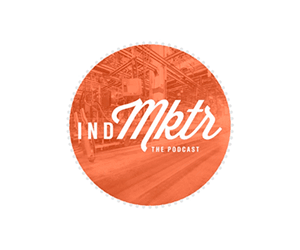Today, almost every industrial company has a website. Many are finding, though, that merely showing up on the web isn’t enough to compete online. They need to supplement it with in-market activation, but they don’t know how to do it. They need a turnkey marketing solution.
If a company hasn’t engaged in deliberate digital marketing before, starting a program from scratch — or unifying fragmented past efforts — can seem daunting. At the same time, with every passing day, there’s an imperative to have a solid, industrial digital marketing strategy in place in order to generate leads and edge out the competition.
At Industrial Strength Marketing, we run across these sorts of scenarios every day. The fact is: A large number of industrials aren’t engaging in online marketing in any deliberate, strategic fashion. They know they have to develop a digital strategy in order to survive and thrive, but they don’t know how. And they want to start doing it today. Or tomorrow, at the latest, since every moment spent learning, talking, and planning means more customers lost to the competition.
Confronted with these circumstances over and over again, we decided to do something about it. We set a challenge for ourselves: Develop a turnkey marketing program for industrials. What follows is a record of some of the conclusions we came to.
If you’d prefer to skip ahead and take a look at the finished turnkey digital marketing product we developed, please check out our Marketstrong® Communicator plans by visiting our website.
What Is Turnkey Marketing?
Like any turnkey service, turnkey marketing has to be a complete package that is ready for use “off the shelf.” By definition, turnkey solutions are designed to be convenient and simple for customers, who receive finished, usable products that can be put into service right away.
In turn, the one providing the turnkey good or service is responsible for all the steps that lead to the creation of the finished product. In the world of manufacturing, this includes materials acquisition, assembly, testing, and, in some cases, aftermarket maintenance and repair. By analogy, turnkey marketing for industrial companies must include a strategic distribution of all the major digital marketing activities — content marketing, email marketing, search engine marketing (SEM), search engine optimization (SEO), and social media — organized in such a way as to surround the industrial buying cycle and generate leads.
Online, this means engaging in a series of structured activities that intercepts buyers where they seek out information and funnels them toward the company in question as they near the moment when they will make a purchasing decision. This process can begin by catching a customer’s attention with a pay-per-click ad that responds to a very specific search, or introducing one’s company through a promoted post on LinkedIn. Then, content such as blog articles or white papers can help them learn more about the specification process they’re engaged in. Finally, an email newsletter can keep a company top of mind and prepare customers for a sales call, or even prompt an inquiry on their part.
Is Turnkey Marketing Truly Possible?
Because industrial marketing is a slow-burning process that responds to a long and complex buying cycle, it’s impossible to create marketing that is completely turnkey in the traditional sense.
Furthermore, one wouldn’t want to create a thoroughly turnkey marketing product because industrial marketing has to be designed to respond to the specifics of a business. In order to work, marketing activities need to be tailored to fit a company’s products and services, strengths and weaknesses, customers, and overall business goals. In other words, there is no completely cookie-cutter solution in the world of industrial marketing. Everything needs to be customized to fit to some degree.
But because the industrial buying cycle is so structured, it’s possible to create an equally structured marketing program capable of intercepting and engaging customers whose purchasing journeys follow the well-established script of the industrial buying cycle, filling in the details to fit a company’s particular goals. A well-designed turnkey industrial marketing program should therefore be something like an off-the-shelf personal computer — it will supply all the hardware and software a user needs to be functional, but they will still need to customize their rig by setting up their email, choosing a background for their desktop, and designating their web browser’s home page.
Components of a Turnkey Marketing Program
So what is the basic hardware that goes into a digital marketing program for industrials?
Website. If a website is going to function as part of a digital marketing program, it needs to be more than a static brochure. It must be equipped to capture customer data and should be updated regularly to convey current, relevant information. Even the simplest B2B marketing website needs forms to capture customer information and a blog or news section for regular updates.
Email Marketing. The next essential feature of a digital marketing program is an electronic newsletter. If a company has a customer database that is compliant with CAN-SPAM laws, the customers and prospects on its email list will have essentially invited the company to send them information about its products and services. When done right, email still has an impressive conversion rate and remains one of the most cost-effective digital marketing tools.
Online Advertising. To attract prospects in the first place, pay-per-click and display advertising is a must. With proper targeting and messaging, a relatively small media spend can go a long way to introduce prospects to a company. Furthermore, by using remarketing ads on Google’s Display Network, online advertising can be a powerful middle-of-the-funnel tactic for keeping a company top of mind as customers navigate the research and comparison phases of the industrial buying cycle.
Blog/News. A company blog is, by now, a traditional inbound marketing technique for engaging customers around their most prevalent questions. It’s also an easy, cost-effective way to update a website on a regular basis, which helps boost search engine rankings. A News section, if updated regularly, can also serve this latter purpose, and press releases can be distributed to targeted media lists, where they can be picked up by trade and business publications.
Search Engine Optimization. While the importance of SEO has been diminished in recent years, one can’t really go without it. It’s still an important component of any integrated marketing mix. Moreover, the root of any SEO efforts is a list of prioritized keywords. This list informs one’s pay-per-click and display advertising campaigns, as well as the content that goes into any blog articles, news releases, or other website updates.
Social Media. The exact role of social media in B2B marketing for lead generation is widely debated because social media can be used for so many things. Especially when boosted with a little advertising, LinkedIn, in particular, can be a great way to aggregate an audience for a company. Increasingly, we see social media serving as a source of website traffic and a tool for declaring a company’s professional affiliations, which helps foster confidence in a company’s capabilities.
For all of these channels to work at their true potential, they need to be integrated with one another. Structured to work collectively toward generating leads by strategically responding to the ebbs and flows of the industrial buying cycle, they can form a powerful marketing mix that will respond to the needs of most industrial companies.
The Limits and Potential of Turnkey Marketing
As noted above, a turnkey marketing program — for industrials or otherwise — can’t be truly off the shelf. While certain channels can be designated as “required,” and the frequencies of marketing communications activities set, content will always need to be customized (i.e., not everyone can use the same e-newsletter or blog articles). Also, while the need to implement a digital strategy is a common one, industrial companies seeking a digital solution have different degrees of online sophistication, readiness, and budget.
That’s why we divided the turnkey marketing solution we developed into three levels. Our thinking was to make our Marketstrong® Communicator product tiered like many cars, which generally have a basic model, a luxury model, and a sport model.
All of our Marketstrong® Communicator options, though, are built to perform. Each includes the requisite digital marketing channels discussed above and integrates them into programs that are designed to respond to the rhythms of the industrial buying cycle. See for yourself by visiting www.weareindustrial.com, or give us a call at 1-866-616-9115 to schedule a test drive.




